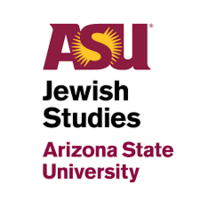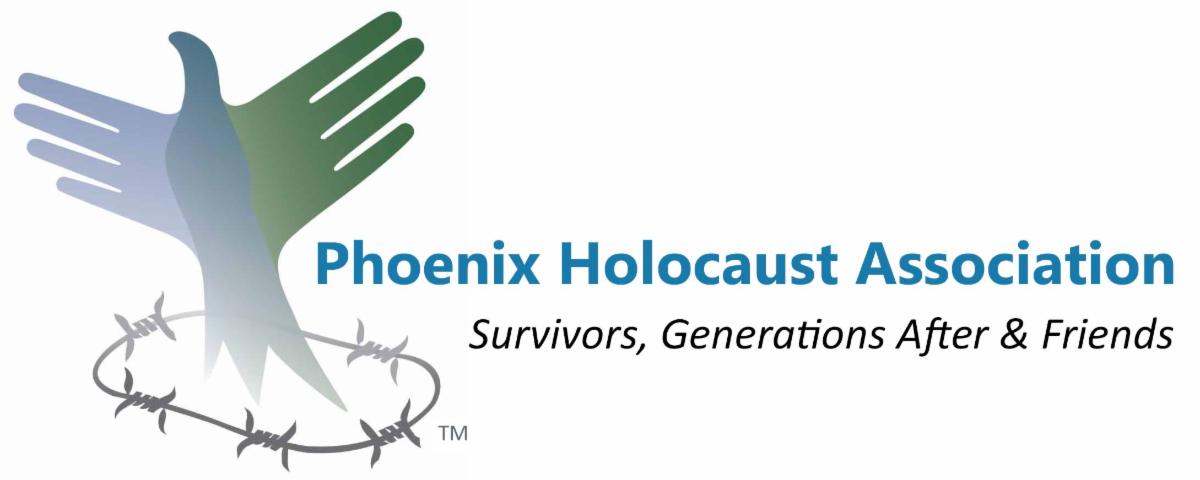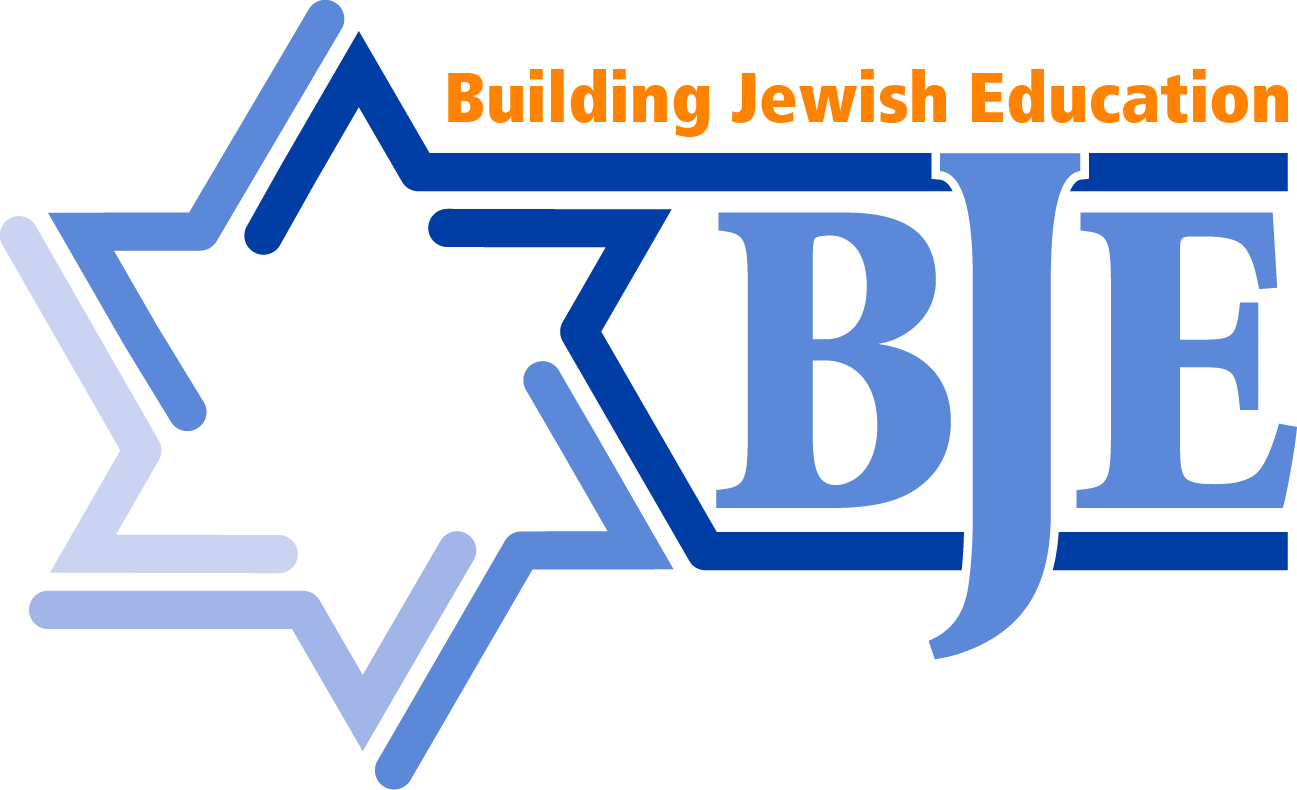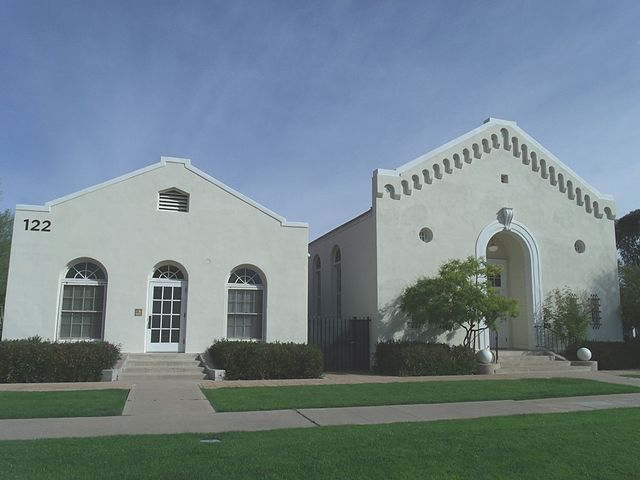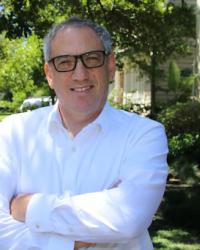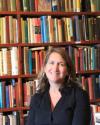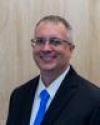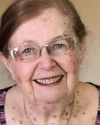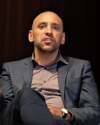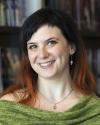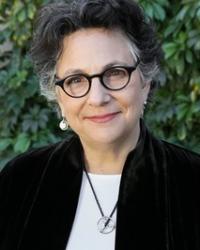The Murray and Sabina Zemel z"l Educators Conference on the Holocaust and Genocide aims to aid Arizona teachers in building programs, developing curricula and sharing best practices in educating on the Holocaust and other genocides.
Please join us for a free all-day professional development opportunity for teachers.
2023 Theme: Resistance
October 24, 2023 | 9:30 a.m. - 4 p.m.
Burton Barr Central Library & Arizona Jewish Historical Society
The first 35 teachers enrolling will also receive funding to cover substitute teachers for the day of the conference.
Schedule
“Jewish Life in the Soviet Union Before the Holocaust”
Brian Horowitz, grew up in Roslyn, NY. He attended New York University (BA) and University of California, Berkeley (MA, PhD), where he studied Slavic Languages. He holds the Sizeler Family Chair and is full professor of Jewish Studies at Tulane University. He is the recipient of many major awards including Yad Hanadiv, Lady Davis, Alexander Von Humboldt, and Fulbright. He is the author of six books that include, Vladimir Jabotinsky’s Russian Years (2020); Russian Idea-Jewish Presence (2013); Empire Jews (2009) and Jewish Philanthropy and Enlightenment in Late-Tsarist Russia (2009). He is presently working on history of Jews in Ukraine. In earlier days he studied the poet, Alexander Pushkin, as well as Russian intellectual history. Recently he has published in popular newspapers, such as the Jerusalem Post, Times of Israel, Mosaic, and Jewish Review of Books. In addition to his 70+ original articles, he has written 99 book reviews for journals in Israel, Germany, Russia and the United States.
Resources for the Holocaust and Genocide Studies Classroom from the PHA Task Force
Kim Klett, retired high school teacher
Kim Klett taught English at Dobson High School since 1991 and recently retired. There, she developed a semester-long Holocaust Literature course, which she began teaching in 2000, and is now year-long. She also teachers an introductory class on Holocaust history at Scottsdale Community College. Klett is involved in Holocaust education through her work as a Museum Teacher Fellow ('03) with the United States Holocaust Memorial Museum, a board member of the Phoenix Holocaust Association, a Teacher Ambassador for Defiant Requiem, and a Senior Facilitator for Echoes & Reflections. In her role as deputy executive director with the Educators' Institute for Human Rights, she has worked with teachers in Bosnia and other post-conflict societies. She was also a Carl Wilkens Fellow in 2010.
Using United States Holocaust Memorial Museum Guidelines and Timelines to Effectively Implement Holocaust Education in Middle and High School Classrooms
Ashley Crose, Saguaro High School
Ashley Crose is a National Board-Certified Teacher as well as a 2022 Arizona Education Association Top 10 Teacher and Semifinalist for State Teacher of the Year. He was also the 2020 Scottsdale Charro’s Teacher of the Year and the 2019 Daughters of the American Revolution Outstanding Teacher of American History. In addition, Ashley is a United States Holocaust Memorial Museum Teacher Fellow class of 2020. He also serves on NAU’s AZK12 Center’s Teacher Solutions Team and is a member of their Board of Directors and he currently teaches AP World History, AP Government and Holocaust/Genocide Studies at Saguaro High in Scottsdale Arizona.
Resistance: A Conversation With Hidden Children of the Holocaust
Betty Newton, Holocaust survivor
Holocaust survivor Betie Levensonas was born on April 22, 1935 in Orleans, France. Her family stayed in Orleans until Betie was 5 years old when her parents then moved to Paris where her father opened a clothing store.
Around 1940 Betie recalls explosions in the area and the family would have to seek shelter in the basement of their home while wearing gas masks. In the need to flee Paris she can even remember hiding under the seats of a train and covering her ears so she wouldn’t hear the destruction and bombardment in the area.
Betie’s parents fled to a small village called Velles. Only two people there knew that her family was Jewish, the mayor and a remarkable strong willed person, Julie Couillard. She was a single Christian woman with a wooden leg. When Julie would hear that the SS were in the neighborhood she would tell Betie’s father so that he could run away to hide in the fields. If the Nazis’ entered her home she would tell them they were all family. She literally saved their lives – even though she did not know anything about them or their backgrounds.
While in Velles, Betie went to school and regularly attended a Catholic church where she prayed to baby Jesus and a cross near the corner of her bed. Around 1945 Betie’s parents invited a Jewish American soldier, who was stationed in the village, to come and eat dinner with them. The soldier, Morris Berkowitz, asked Betie if she knew she was Jewish and Betie replied, “No, I am Christian,” believing she was. Following the war Betie’s father explained everything to her. Betie was confused for a long time which later led her to study many different religions and their varied beliefs.
Charlotte Adelman, Holocaust Survivor
Holocaust survivor, Charlotte Adelman was 9 years old and living in Paris when the Nazis invaded in 1940. She and her brother were given away to an orphanage by her parents, who were told by the Nazis that they had to go work at a "camp." Instead, they were put on a truck that was headed to Auschwitz, where her mother, the motivation for Charlotte’s own survival, was killed. Adelman’s father escaped but her mother stayed on the truck, fearing she'd be killed and never see her children again if she ran away. Adelman's brother was sent to the hospital due to scarlet fever, and she was adopted by a woman who was later known to be selling children to the Nazis. Her father successfully located her and made arrangements to bring her to the Quatreville family in Beaumont du Argonne. Charlotte’s dad met "Mr. Quatreville,” where he was working for the Germans in hopes of finding out his wife’s whereabouts. He asked if his family would be willing to take care of young Charlotte so she would be safe from the Nazis. The Quartreville family, recognized by Yad Vashem as Righteous among the Nations, agreed to take her in and hid her in a cellar, with a mattress and a lamp. Charlotte spent 9 months in the dark basement, recalling that food was brought to her by the Quartreville’s daughter, Ginette. After the war, Charlotte stayed with the Quatrevilles for another six months, as her father fought to find her brother and piece their lives back together. Over the years, Charlotte lost touch with the family, but in 2014, after nearly 70 years of not being in contact with the family who saved her, she received a message from Quartreville on Facebook, and later reunited.
Moderator: Tony Fusco
Anthony (Tony) D. Fusco Jr. is the Education Coordinator at the AZJHS. He sits on the Phoenix Holocaust Association, Board of Directors, the Arizona – Anti-Defamation League, Education Committee, & the ADE’s Holocaust/Genocide Education Task Force. Additionally, Tony teaches history and psychology at Estrella Mountain Community College and holds a BA in History & Political Science from the University of Delaware, an M.S. in Psychology from the Grand Canyon University, and an M.Ed. in Secondary History Education from Northern Arizona University.
“A Kind of Resistance”
Miriam Libicki, graphic novelist
Miriam Libicki is an Eisner-nominated author, cartoonist and illustrator of narrative nonfiction, with a BFA in Visual Art from Emily Carr University and an MFA in Creative Writing from UBC. She teaches illustration and humanities at Emily Carr University. Libicki collaborated with survivor David Schaffer to paint his story for BUT I LIVE, (University of Toronto Press, 2022) a trio of illustrated accounts by child Holocaust survivors aimed at general readership and high school classrooms.
Resistance Through Music: Defiant Requiem
Kim Klett, retired high school teacher
Kim Klett taught English at Dobson High School since 1991 and recently retired. There, she developed a semester-long Holocaust Literature course, which she began teaching in 2000, and is now year-long. She also teachers an introductory class on Holocaust history at Scottsdale Community College. Klett is involved in Holocaust education through her work as a Museum Teacher Fellow ('03) with the United States Holocaust Memorial Museum, a board member of the Phoenix Holocaust Association, a Teacher Ambassador for Defiant Requiem, and a Senior Facilitator for Echoes & Reflections. In her role as deputy executive director with the Educators' Institute for Human Rights, she has worked with teachers in Bosnia and other post-conflict societies. She was also a Carl Wilkens Fellow in 2010.
Scream the Truth to the World: The Secret Archive of the Warsaw Ghetto During WWII
Award-Winning Filmmaker Roberta Grossman
An award-winning filmmaker with a passion for history and social justice, Roberta Grossman is a member of the Academy of Motion Pictures Arts and Sciences Documentary Branch and of the Writers Guild of America. What sets her films apart are high production values, beautiful cinematic craftsmanship and inspiring protagonists. Grossman’s films tell stories of ordinary people doing extraordinary things in the name of justice. According to Grossman, “making a documentary is like pushing Sisyphus’ rock up a steep mountain. The only way to summit is to have a sense of personal responsibility to tell a story that would otherwise remain untold.”
Grossman wrote, produced and directed Who Will Write Our History, a feature documentary about Emanuel Ringelblum and the secret archive of the Warsaw Ghetto, which was executive produced by Nancy Spielberg and released to great acclaim in 2018. Also in 2018, Grossman co-directed with Sophie Sartain the Netflix Original Documentary Seeing Allred, about women’s rights attorney Gloria Allred, which premiered in competition at the 2018 Sundance Film Festival. Grossman recently completed the film Reckonings, about reparations, for the Claims Conference and the German Finance Ministry. Grossman is also the producer of the recently released Vishniac, about famed photographer Roman Vishniac.
In 2014, Grossman directed Above and Beyond for producer Nancy Spielberg, about the American–Jewish WWII pilots who volunteered to fight for Israel in the 1948 War. Grossman’s 2012 documentary Hava Nagila (The Movie), used the ubiquitous song as a portal into 150 years of Jewish history, culture and spirituality. Blessed Is the Match: The Life and Death of Hannah Senesh, Grossman’s 2008 film, was shortlisted for an Academy Award. Grossman also produced Dorothea Lange: Grab a Hunk of Lightning, which aired on PBS/American Masters in 2014 and was the series producer and co-writer of 500 Nations, the eight-hour CBS series on Native Americans. Her film Homeland: Four Portraits of Native Action, aired on PBS in 2005.
Grossman is a three-time recipient of grants from the National Endowment for the Humanities. She is a Phi Beta Kappa graduate of the University of California at Berkeley, with a degree in honors in history. She received an M.A. in film from the American Film Institute. In 2020, Grossman received the Taube Jewish Peoplehood Award. The award honors Jewish men and women who have worked to foster pride in Jewish identity and heritage for new generations, making a uniquely Jewish contribution to global culture. In 2021, Grossman launched Jewish Story Partners (JSP), a film funding organization with a mission to support filmmakers telling stories with Jewish themes. JSP launched with lead funding from Steven Spielberg’s Righteous Persons Foundation.
Location: Arizona Jewish Historical Society, 122 E Culver St, Phoenix, AZ 85004

Thank you to our sponsors
